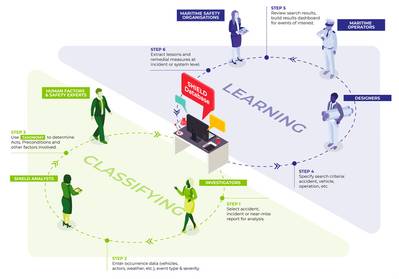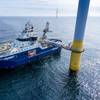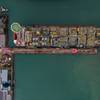SHIELD Seeks More Data to Protect from 'Human Error' in Maritime Incidents
The University of Strathclyde has encouraged ship operators, safety professionals and accident investigators to use the Safety Human Incident & Error Learning Database (SHIELD) to better understand the underlying root cause of human-factor related issues in maritime incidents.
SHIELD, developed by a consortium of partners across the aviation and maritime spheres as part of the European Union’s SAFEMODE project, was launched in 2022 and is now being used by major cruise lines, a UK-based ferry operator, safety agencies in Europe and Asia, and a number of accident investigation boards.
But more data is required if SHIELD is to have a material benefit on future maritime safety and policy, says Rafet Emek Kurt, the head of the University’s Maritime Human Factors Centre, who led the SHIELD development for maritime.
"Human factors have long been recognized as a critical element in shipping safety, yet whenever there is an accident, in reaction to the lessons learnt we continue to overload the seafarer with more safety procedures, more checklists, more training.
“This is largely ineffective in reducing human factor incidents and increases the cognitive load on the seafarer. We need to address the root cause of an accident to have any meaningful impact,” said Kurt.
Kurt added that the SHIELD platform provides invaluable feedback to ship managers, policymakers, accident investigators, and ship and system builders to better quantify the human components in safety risk models, resulting in positive changes in ship design, operations and rules.
“So far, in the absence of high-quality data, the maritime sector has failed to include human factor considerations in critical decision making. As a result, envisaged safety improvements from the sector have been ineffective, with accidents continuing to occur at a steady rate after,” noted Kurt.
The SHIELD taxonomy assesses input data against a range of extenuating factors affecting human performance, such as workload, situation awareness, stress and fatigue, human system interfaces, and teamwork. But it goes further by providing insight into how organizational and leadership structures, strategies, cultures and socioeconomics play a part.
Insights gleaned can also directly inform the work of naval architects, equipment manufacturers, and regulators. By understanding the human factors challenges faced by operators, these stakeholders can design safer, more user-friendly systems and implement targeted policies to address systemic problems.
"SHIELD represents a paradigm shift in how the shipping industry approaches safety. By empowering shipowners to deeply analyze their accident data, we can move beyond the traditional 'human error' narrative and uncover the true drivers of incidents. This knowledge is invaluable in creating a safer, more efficient, and more sustainable maritime sector,” concluded Kurt.
Shipowners interested in leveraging the power of SHIELD are encouraged to contact the University of Strathclyde’s Maritime Human Factors Centre.











